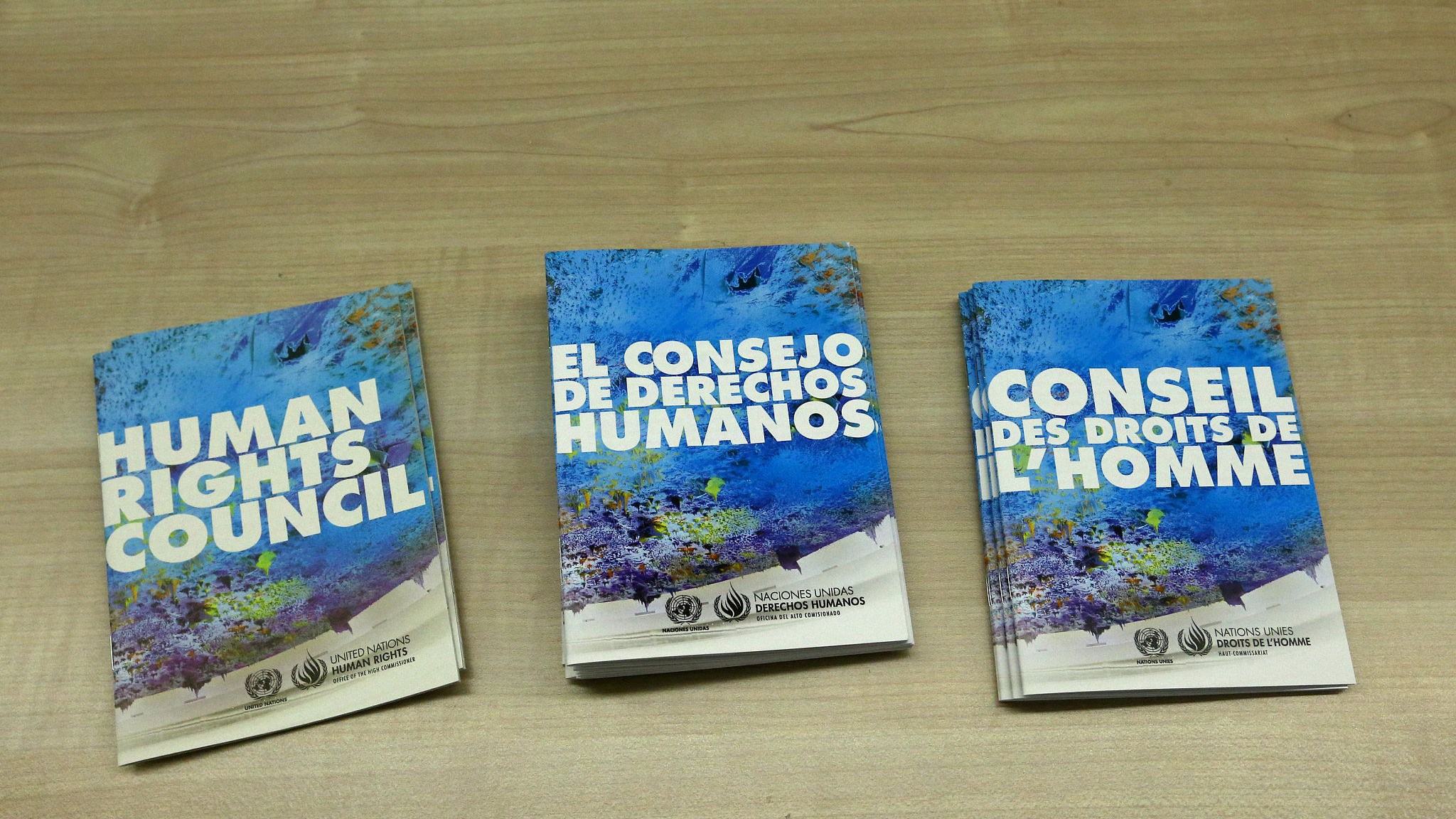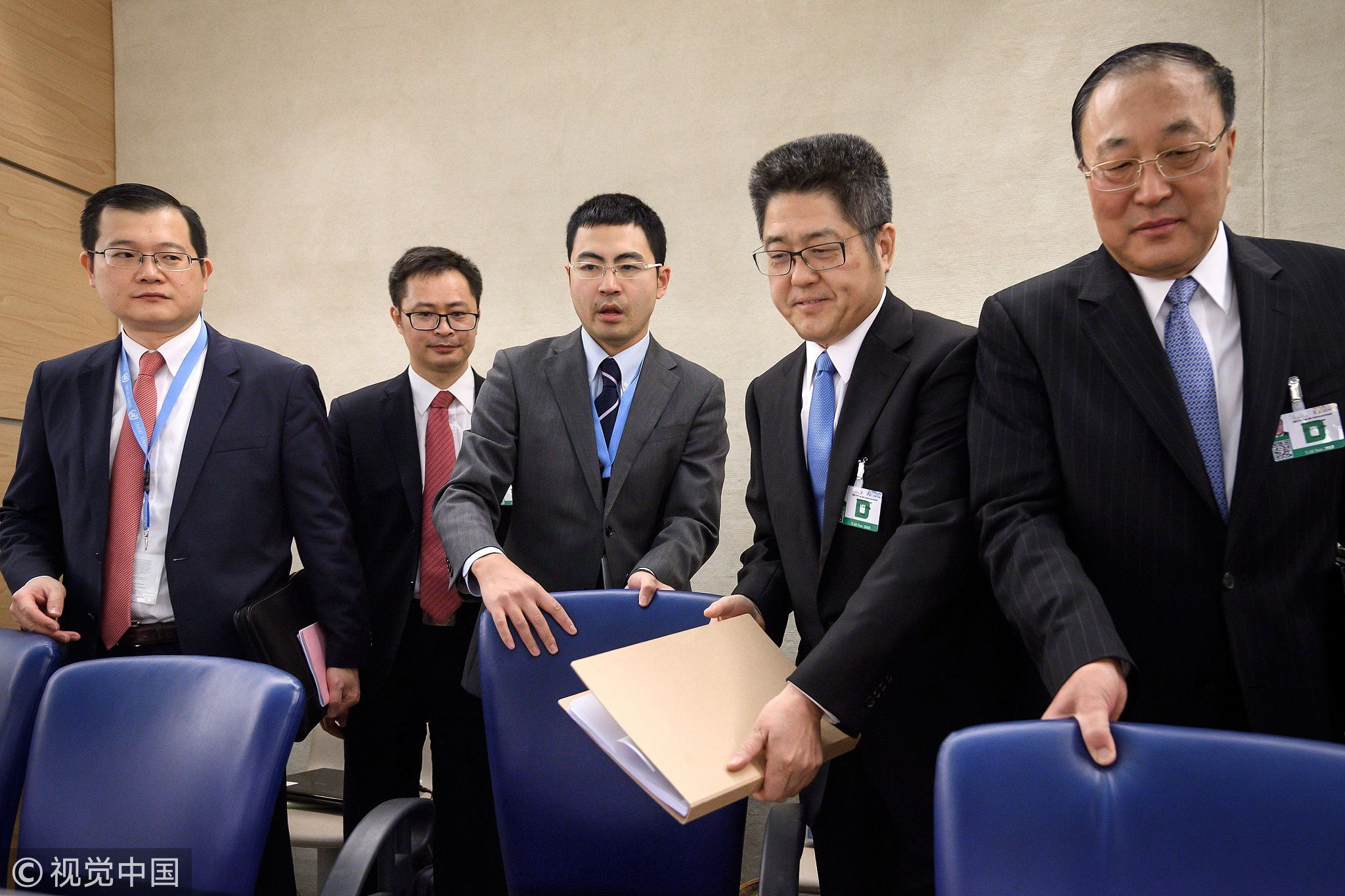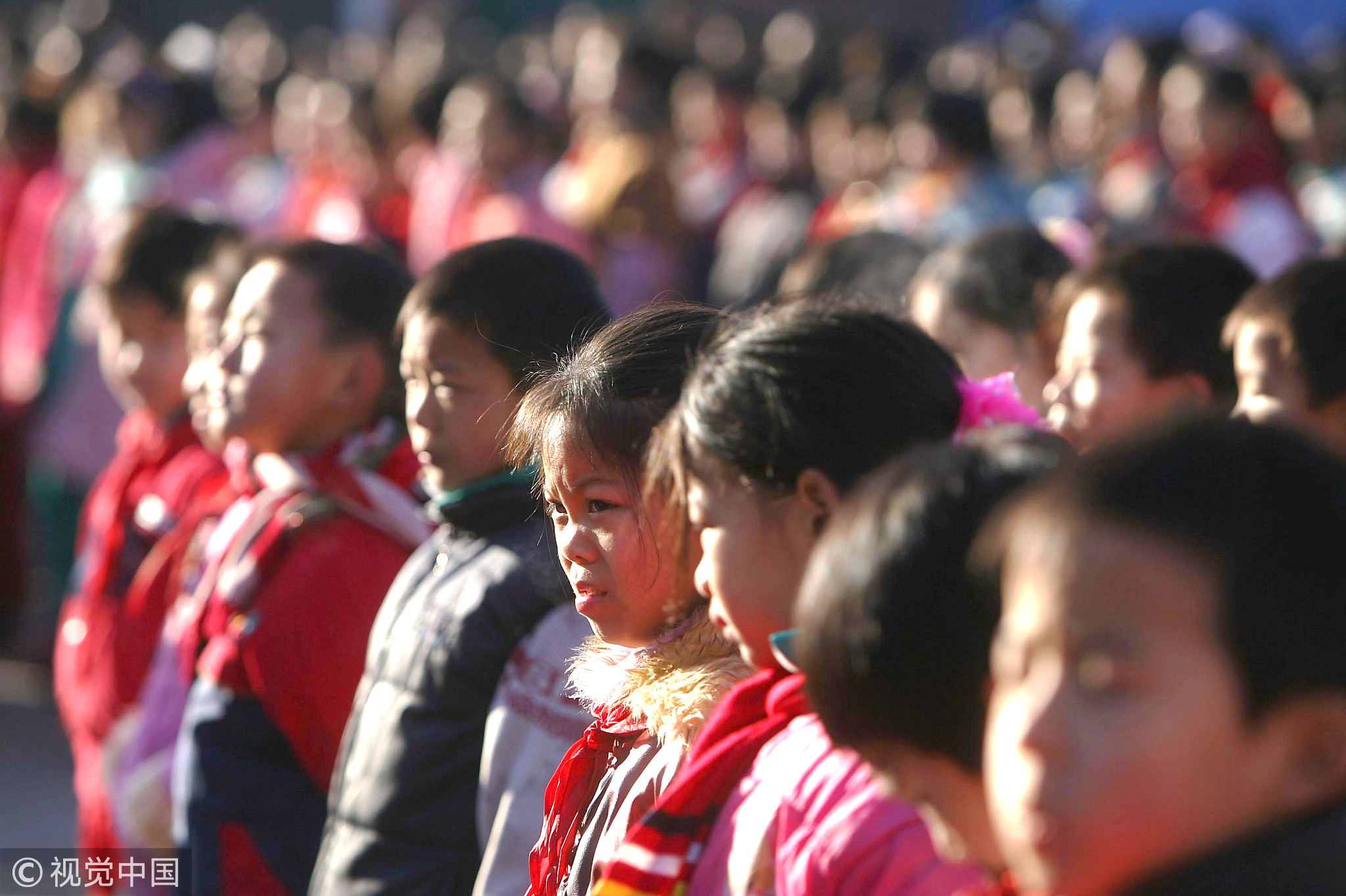
Opinions
08:12, 13-Dec-2018
Opinion: China's human rights development centered on innovation and pragmatism
Updated
07:28, 16-Dec-2018
CGTN

Editor's note: The following is an edited translation of a commentary that first appeared on the Chinese-language website "Commentaries on International Affairs" on December 12, 2018. The translated version was first published on the website China Plus.
On Wedneday, China's government published a white paper called "Progress in Human Rights over the 40 Years of Reform and Opening Up in China". The report expounded on the concepts of people-centered human rights that China has developed over the past 40 years. The white paper says that China has blazed a trail of human rights development that conforms to its national conditions, and made substantial progress in safeguarding human rights.
"Human rights" is a political and theoretical concept put forward by the European bourgeoisie in the struggle against feudal dictatorship in the 17th and 18th centuries. Its purpose was to fight against theocracy, monarchy, and hierarchical privileges. It had a huge impact in terms of being ideologically emancipating. But from the beginning, there were obvious historical and class limitations that made it impossible to establish a universally applicable model and standard for the concept of “human rights”.
How does China conceptualize the idea of human rights? China's President Xi Jinping sent a congratulatory letter to the recent symposium in Beijing commemorating the 70th anniversary of the publication of the Universal Declaration of Human Rights, in which he said that "the happy life of the people is the greatest human right."
He proposed that China would combine the universality of human rights with contemporary reality, taking a path of human rights development that's in line with national conditions, pursuing a people-centered concept of human rights, and taking the rights to subsistence and development as the primary basic human rights.
The white paper goes on to point out that after 40 years of reform and opening up, China has established a set of basic rights that prioritizes the right of the people to subsistence and development, and proposed that China follow a path of comprehensive and coordinated human rights development under the rule of law.

Chinese Vice Minister of Foreign Affairs Le Yucheng (2nd R) arrives with his delegation to attend the Universal Periodic Review of China before the UN Human Rights Council in Geneva, November 6, 2018. /VCG Photo
Chinese Vice Minister of Foreign Affairs Le Yucheng (2nd R) arrives with his delegation to attend the Universal Periodic Review of China before the UN Human Rights Council in Geneva, November 6, 2018. /VCG Photo
China's human rights development is pragmatic and based on taking effective action. As the white paper points out, "respecting and protecting human rights" has been written into China's constitution and its strategies and plans for national development, and has become an important principle of governance.
Take poverty reduction as an example. This is the primary goal of the UN's 2030 Agenda for Sustainable Development and an important way to promote and protect human rights. In the past 40 years, China has reduced the number of people living in poverty by more than 850 million, contributing to more than 70 percent of the global reduction in poverty.
From 1978 to 2017, the number of rural poor in China has decreased from 770 million to 30.46 million, and the incidence of poverty has dropped from 97.5 percent to 3.1 percent. Poverty reduction is the most prominent symbol of China's human rights development.
During a recent visit to China, Germany's President Frank-Walter Steinmeier told President Xi that he admires China's achievements in economic and social development over the past 40 years, especially its success in enabling hundreds of millions of people to escape poverty and had adequate food and clothing. And World Bank President Kim Yong recently said that over the past 40 years, China has achieved poverty reduction achievements rare in human history, and its experience can help other countries to develop.
President Xi had made it a goal to coordinate and enhance the economic, political, social, cultural, and environmental rights of all people. The white paper elaborated on China's progress towards this goal in terms of its people's improving living standards, personal rights and the right to dignity, property rights, the right to work, the right to social security, the right to education, cultural rights, the right to vote, the right to know, the right to participate, the right of supervision, and their right to practice their religion.

Students gather on the playground at Xingzhi Primary School, one of the largest schools for migrant workers' children, during a flag-raising ceremony in Beijing, China, December 28, 2004. /VCG Photo
Students gather on the playground at Xingzhi Primary School, one of the largest schools for migrant workers' children, during a flag-raising ceremony in Beijing, China, December 28, 2004. /VCG Photo
It pointed out that China has significantly improved the rights of groups such as ethnic minorities, women, children, the elderly, and people with disabilities. "It is a fact,” said the report, “that the Chinese people have never enjoyed a more extensive range of human rights than they do today."
And as a responsible major country, China has been helping to improve the lives of people elsewhere around the world. For example, from 1950 to 2016, China provided more than 400 billion yuan in external aid and implemented more than 5,000 overseas aid projects. From 2013 to 2017, by establishing economic and trade cooperation zones in Belt and Road countries, China has helped create more than 200,000 jobs in the host countries.
Since 2004, China had supported over 300 international humanitarian relief programs, with an average annual growth rate of 29.4 percent. By May 2018, China had dispatched 37,000 military and 2,700 police personnel to participate in 30 UN peacekeeping missions. And China ranks first in terms of the number of peacekeepers among the permanent members of the UN Security Council.
There is no such thing as an ideal situation for human rights, only a better one. The white paper doesn't shy away from the conclusion there is still a lot of scope to improve human rights protections. That said, in the past 40 years, China has blazed a path of human rights development that suited its national conditions as it embarked on its reform and opening up.
Over the next 40 years and beyond, people in China will enjoy greater dignity, freedom, and happiness as ongoing reform and opening makes new contributions to the development of the world's human rights cause.
(If you want to contribute and have specific expertise, please contact us at opinions@cgtn.com.)

SITEMAP
Copyright © 2018 CGTN. Beijing ICP prepared NO.16065310-3
Copyright © 2018 CGTN. Beijing ICP prepared NO.16065310-3